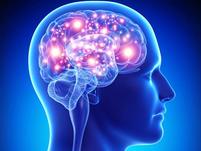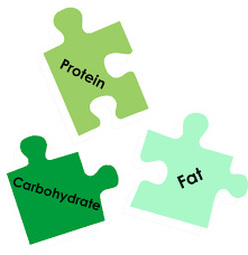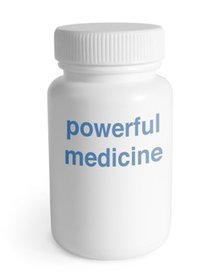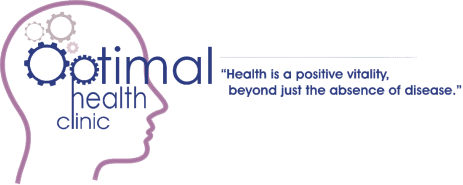You can read my article here.
|
0 Comments
You can find my article here.
An inspiring post by Kelly Brogan, MD.
I had a great opportunity to attend Kelly Brogan’s conference on holistic approach and treatment of psychiatric ‘diseases’, mainly anxiety and depression.
This was a very comprehensive seminar and a real eye opener. Below are some of the main points I wanted to share. I recommend anyone interested in a more holistic approach to mental health going to Kelly’s website or buying her new book ‘A Mind of Your Own’. What is depression? Depression is a number one cause of disability worldwide. More and more people are medicated, including teenagers and even toddlers, yet more people are disabled than ever before. Conventionally, depression is seen as a disease and often the only treatment that is offered is medication. As there isn’t any research showing depression is heritable, explaining its discrete aetiology, or known mechanisms by which the medications act, some experts question this approach. Moreover, the catecholamine hypothesis (linking affective disorders to serotonin levels), which lies at the basis of the widely accepted conventional treatment, has never been backed up by supporting evidence. “There is no direct evidence of serotonin or norepinephrine deficiency despite thousands of studies that have attempted to validate this notion.” Source: Nat Rev Neurosci. 2005 Mar;6(3):241-6 Does the medication work? Selective Serotonin Reuptake Inhibitors (SSRIs) often prescribed by the doctors have, according to Kelly, a short term chemical effect on the body. She has compared this effect to the effect of alcohol, which can help for example in cases of social phobia. This of course doesn’t mean we can suffer from alcohol deficiency. The same, the positive effects of SSRIs don’t prove that the medication really works and addresses the real cause of the ‘disease’. Research also shows that as high as 75% of the response was contributed to the placebo. Although placebo effect should, in my opinion, be rather embraced this is not the case if we consider possible side effects and risks of the medication like increased impulsive violence against self or others. According to dr. Kelly, they rather create an imbalance, worsen the illness, and are addictive causing withdrawal symptoms. There is also no one study suggesting that long-term usage leads to better outcomes than no medication. “Unfortunately, in the balance between benefits and risks, it is an uncomfortable truth that most drugs do not work in most patients.” ~ Fiona Godlee Editor, British Medical Journal What really is depression? Depression is not a disease, but rather a symptom. There are several health problems shown to produce symptoms of depression including gut dysbiosis, blood sugar dysregulation, gluten intolerance, hormonal imbalances, hypothyroidism, deficiencies of neurotransmitter precursors and cofactors, while inflammation is often a common driver. From the evolutionary point of view, it seems like symptoms of depression were adaptive -helping us to solve problems, fight infections or environmental threats by isolation, eating less, rest etc. Is there a treatment? There is no one treatment fits all as the underlying cause can be different for different people. Our bio individuality also plays a role. There are some basic interventions though everyone can try before going the conventional route. Working with a skilled professional can also help to adjust the protocol to one’s individual needs. Dr Kelly pointed out several, important aspects she addresses with all new patients. They include:
From her clinical experience, her clients achieve best results if they do incorporate dietary and lifestyle changes at the same time. Although it seems like a big undertaking, she does appreciate possible limitations and often busy schedules and makes it as easy and accessible as possible. It may significantly change quality of life, and it’s safe! Kelly Brogan is board certified in Integrative Holistic Medicine, Psychosomatic Medicine/ Consultation Psychiatry, and Psychiatry. You can find more information about her journey and approach here.  What is vitamin D? In spite the name vitamin D gets actually converted to a steroid hormone in our body. It regulates over one thousand of different physiological processes. It controls approx. 5% (possibly even more) of the human genom, meaning that it turns the genes on and off when needed. Optimal vitamin D levels are hugely important. People with adequate vitamin D status have lower all-cause mortality including Cardiovascular Disease, cancer, respiratory and generative diseases. Its deficiency is also linked to accelerated aging process. Vitamin D and autism. Vitamin D has also a very important role in brain development and its function. It has been linked to autism by many researchers but only recently dr. Rhonda Patrick published a hypothesis explaining the likely mechanism. While vitamin D status has been going down because of the many lifestyle factors like staying indoors more and using sunscreens, there has been an increase in incidence of autism at the same time. Vitamin D and serotonin link. Vitamin D has been shown to be responsible for activating an enzyme involved in the conversion of tryptophan into serotonin. Tryptophan is an amino acid coming from our diet and serotonin is a neurotransmitter known mainly for boosting mood but it actually does much more in the brain and throughout the body. Serotonin is very important in foetal brain development, required to shape the structure and wiring (the function) of the brain. As the foetus depends fully on the maternal levels of vitamin D, its deficiency can have severe consequences during pregnancy. Induced vitamin D deficiency in pregnant mice has been linked to autistic behaviours in the offspring. Optimal levels throughout pregnancy can also prevent maternal autoimmunity, which has also been linked to autism. Autoimmunity is an activation of the immune system, which starts to attack the body’s own tissues or the tissues of the foetus. Vitamin D is thought to be involved in the protective mechanism (T regulatory cells production), which is design to quiet down immune system and prevent such attacks. It has been shown to have a protective role during pregnancy but also in autoimmunity in general. Apart from its role during pregnancy serotonin supports our healthy brain function including our mood, impulse control, long term planning, elevating anxiety, depression, sensory impairment and boosting memory. At the same time, vitamin D can help to lower excessive production of serotonin in the gut. We do produce serotonin in the gut but its role is different than in the brain and serotonin produced in the gut cannot actually get into the brain. Its excess in the gut is linked to inflammation and conditions like colitis. Optimising vitamin D levels has been shown to be very helpful. Vitamin D supplementation. It’s important for every female, who wants to get pregnant or is already pregnant to optimise her levels of vitamin D, which is linked not only to autism but also ADHD, schizophrenia and normal brain functioning in general. Because of the many important functions of vitamin D and the fact that the test is easy and not expensive everyone can hugely benefit from testing and supplementing if necessary. It’s important to test before taking any supplements. As in many cases it’s about optimal levels (not too little and not too much). There is also possibly quite large amount of people, who cannot convert supplemental vitamin D to its physiologically active form in the body and require high dosages. This is why retesting is also important to check if the supplementation works and the levels are going up but also are not exceeding the recommended optimal range. You can find more information in this short interview with dr. Rhonda Patrick.  We tend to favour lean muscle meats over high in gelatin animal parts like skin, tendons, and other gelatinous cuts. More traditional diets are much higher in gelatin. Let’s look at the benefits of gelatin and ways we can incorporate more of it in our diets. Why to include gelatin? Beautiful skin. Gelatine provides non-essential amino acid glycine. It means our body can make glycine but the problem is we don’t make enough to meet our needs. Glycine is the primary amino acid in collagen, one of the primary structural element of skin. It makes our skin healthy and beautiful, providing elasticity and preventing excessive wrinkling. Healthy joints Gelatin improves joint health and reduces inflammation. Athletes, who supplement collagen, experience less pain in their joints, which can significantly improve performance. It also supports healing and speeds up recovery from injuries. People suffering from inflammatory joint or bone diseases like arthritis or osteoporosis, can also benefit from collagen consumption to manage inflammation and pain. Meat consumption balance. Muscle meats are high in amino acid methionine, that rises homocysteine levels. High homocysteine is a significant risk factor for heart disease, stroke, and other serious diseases. You need adequate glycine intake to balance out the potentially negative effects of high animal protein consumption. This may be why some studies show correlation between high meat intakes and various disease states. Improved sleep quality. Glycine consumed before bed (in the amount of 3g) has been shown to help with sleep and with no side effects. It is also an inhibitory neurotransmitter, which can decrease anxiety and help you to stay calm. Gut health. Gelatin improves gut integrity and digestion by supporting healthy mucosal lining and stimulating stomach secretions. Both, poor digestion and impaired gut integrity, are very common in our society. Gelatin also promotes healthy bowel movements. Protein sparing. Gelatin intake reduces muscle meat needs to maintain muscle mass meaning that you can put on and maintain muscles without high animal protein consumption. Reduces wasting of animal parts. Gelatin uses parts of the animal that might not be used otherwise, making it more environmentally-friendly. This is more traditional way of meat consumption with minimal wasting. Enhances taste. Used in soups and sauces significantly enhances your cooking. It gives better richer flavour with additional health benefits. How to incorporate more gelatin into your diet? 1. Eat gelatinous parts like skin, necks, and tendons. You can use slow cooker so they become really tender. 2. Drink bone broth or use it in cooking to make soups and sauces. It’s very beneficial to have small amounts (1/2 cup) each day. 3. Use high quality grass-fed gelatin powder like ‘Great Lakes’. Whole protein gelatin is great for digestive health. It must be mixed into warm fluids and can be used to make jello. 4. Hydrolyzed form can be used as protein powder added to smoothies, any type of liquid including cold drinks and juices. It can improve skin, joint health and improve your sleep. You can find my new article here:
https://elanify.com/live-healthy/health/are-you-getting-the-nutrients-you-need-for-a-long-and-healthy-life  I don’t really focus on counting anything. I don’t count calories and I also don’t like calculating fat/carbs/protein ratios. The reason is that it can become complicated, tedious and can also take away at least some of the fun and pleasure from eating and naturally responding to our body needs. I prefer to compose my meals based on how I feel, planned activities and time I can spend in the kitchen on a given day more than pre-calculated ratios and fixed ideas. Having said that there are some basic rules and it’s good to keep them in mind. Proteins are easy as we need just enough, not too much, not too little. We need protein for many of the functions in our body as well as for optimal muscle mass. They also help with blood sugar regulation and cravings. In practice, it means that we should ideally have some source of protein with each meal. It can be a small piece of meat or fish (a palm size) or vegetarian sources like a small handful of nuts and seeds for example. We are all different of course and if we struggle with keeping or putting some muscles on or other health challenges we should re-adjust. In general, the excessive consumption is not necessary and potentially even harmful. When it comes to fat and carbs my first and I think the most important rule is their quality. This concerns of course protein as well. Before we start experimenting with any ideas, either high fat or low fat, we should make sure carbs come from optimal, wholefoods’ sources and we avoid any unnatural or damaged fats. This is more important for our health than coming up with a perfect carb to fat ratio. Once we clean up our diet, we can think about what optimal nutrition means for us. Basic understanding of our metabolism and what actually happens with the macronutrients in our body is important in my opinion. We want to get rid of any preconceptions or ideas promoted for such a long time. Low fat diet is one of them. As a first step I’d avoid any low fat products, which goes with my first rule about the quality. Low fat yoghurts, low fat cookies etc. are usually not wholefoods and often packed with extra sugar, sweeteners or other ‘strange’ and often unhealthy ingredients to make them edible. Fat makes foods taste good. If your remove fat you have to compensate. The idea that we do need healthy fat in our diet is often quite difficult to accept especially when someone comes for weigh loss. Why would I eat fat if I want to lose fat? This is when a little understanding about our physiology comes handy and we discover that excess carbs are actually stored as triglycerides (fat) in our bodies. It doesn’t mean that everyone should be on a low carb diet. Low carb diet can be not optimal for you, depending on your lifestyle, age, gender, activity levels etc. or even harmful in certain conditions. If we are in good general health, we can experiment and find out what makes us feel the best. We certainly should not be scared of good quality fats in our diet. I recommend watching this short video by Dr Mark Hyman, the medical director at Cleveland Clinic’s Center for Functional Medicine. It’s aimed at fatty liver disease but explains the role and destiny of different macronutrients nicely.  Not so long ago I felt rather negative about so called placebo effect. I have to admit I thought of it mostly as a fake treatment and something that should be discounted. Studying and practicing naturopathy and nutritional therapy changed my view and made me appreciate placebo effect and the mind-body connection more. There are several reasons why we may feel today the disconnection between mind and body. One of them is probably technical and scientific progress and the need to understand, dissect and be able to prove everything. Let’s see then what current science and research has to say about the placebo effect. How does placebo work? As I said earlier placebo is often understood as ‘fake’ treatment. Something that alters our perception but doesn’t actually cause any biochemical changes in our body. It turns out that it does. It can trigger release of endorphins in the brain just like some of the painkillers do. It can also influence hormonal balance and other processes in our body like immune system function. So the physical changes do occur and it’s not all in our mind only. What’s interesting the effectiveness is often comparable and sometimes higher than the conventional treatment including surgeries. Yes, they have done studies on placebo surgeries (spine surgeries, I believe) and the results where amazing. Can you believe it? This is based on the belief that we are going to get better as you usually hope after having a surgery. There is also another mechanism of how placebo may work. It’s based on the learned association (Pavlovian conditioning). If you took a drug in the past your body learned how to respond to it. Next time you take placebo it will try to respond in the same way. There is of course a question about ethics and using placebo, especially when we consider surgeries. Some experts say though that it would be unethical not to use it when it doesn’t produce side effects and has similar results. There is also something called ‘honest placebo’ being researched, when patients are aware of receiving placebo and interestingly they still experience benefits. It can work through learned association mentioned before or the fact that they feel looked after and receive support they need. What can influence placebo effectiveness? It’s really important how we feel about the treatment we are going to receive. We should trust and be confident in the practitioner, procedure or a drug. If we don’t feel it’s right for us we probably won’t benefit from it, at least not from the placebo effect. Working with a warm and emphatic practitioner, willing to spend more time with us gives also much better results. Cultural believes are also important as the research shows the response to placebo effect is much higher in some countries compering to others. How can you take advantage of placebo effect in everyday life?
I hope it was useful and empowering to know more about the role of our mind and believes and their effects on our health. You can find more information in the Jo Marchant’s book ‘Cure: A Journey Into the Science of Mind over Body’, which I highly recommend. You can also listen to this interview with her by Chris Kresser. |
Archives
September 2018
Categories |

 RSS Feed
RSS Feed